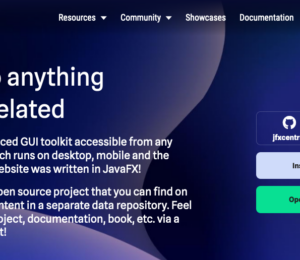FXGL Game Engine 17 Released
- January 03, 2022
- 4161 Unique Views
- 2 min read
Version 17 of the FXGL game engine brings a number of improvements in many areas. Key changes include:
- FXGL source is now built with Java 17 and JavaFX 17.
- The changelog is now automatically generated from commits.
- Animated textures (sprite sheet animations) are now driven by the unified FXGL system, meaning you can use interpolators, play in reverse and many other supported features.
- 3D skybox implementation.
- DialogueContext object for storing data that is local to the context in which the dialogue is being run.
- Improvements to avoid various crashes on the Raspberry Pi.
Auto-generated Changelog
The full changelog is given below.
build
- kotlin 1.5.10 -> 1.5.32 commit
- maven pmd plugin 3.13.0 -> 3.15.0 commit
- base Java 17, switch to 17+dev-SNAPSHOT commit
- javafx 16 -> 17.0.0.1, closes #1107 commit
docs
feat
- FXGL 17 intro commit
- added transferFrom() to Inventory commit
- new API to set time to animation directly and to build sequential animations commit
- dialogue syntax check, show an error icon if there are incomplete paths, #651 commit
- added showChoiceBox to DialogService, closes #1094 commit
- added audioFileName support to nodes, #651 commit
- bind debug camera to CTRL+8, to avoid issues with CTRL+C commit
- added DialogueContext, #1116 commit
- added bulk dialogue editor actions commit
- undo (ctrl+z) is complete for main editor actions, #651 commit
- added TimeComponent::copy, #1041 commit
- Added draft skybox implementation commit
- add Platform.EMBEDDED, #1079 commit
- added public API to change render fill of FXGLPane, set default to White for consistency with native mode, #1085 commit
- added randomColorHSB() commit
- added embeddedShutdown() that allows restarting an FXGL instance without the need to exit JavaFX, added sample, #1075 commit
fix
- fixed non-uniform frame distribution for AnimationTexture, closes #1067 commit
- fixed a bug that causes audio service to not load properly on embedded devices commit
- fixed a bug that would cause FS access via gluon attach on embedded devices commit
refactor
- internal refactor Inventory commit
- clean up MDIWindow, closes #815 commit
- remove redundant code, active is always false at that point, closes #1024 commit
repo
- ignore auto-generated changelog files commit
Contribute
You can contribute to the development on GitHub.
Don’t Forget to Share This Post!








Comments (0)
No comments yet. Be the first.